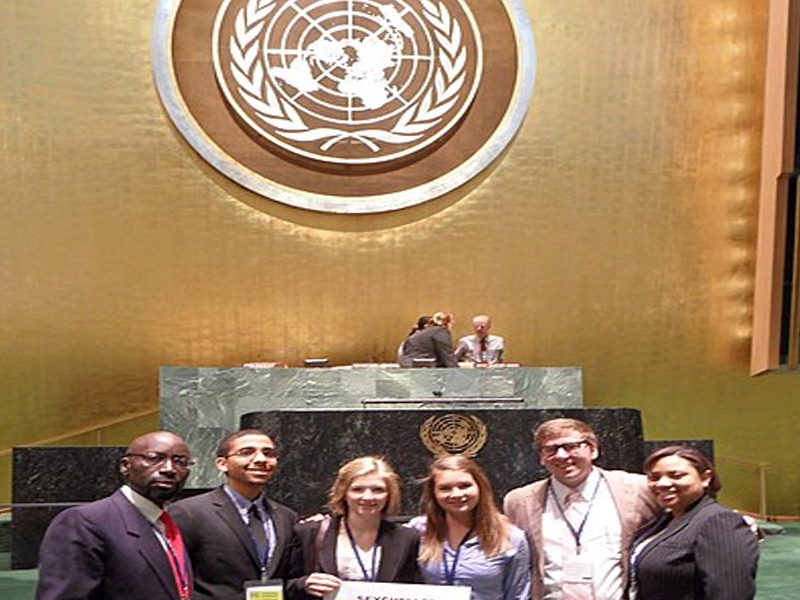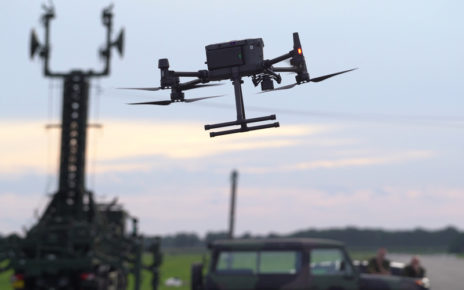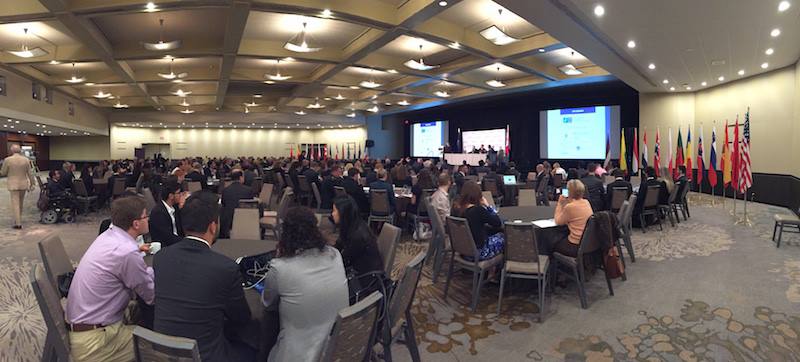The main purpose of scrutinizing youth attitudes to international security is understanding the influence young people can have on security policy. It can be difficult to determine how salient foreign or military policy is for Millennial and Generation Z voters in determining their voting patterns. However, the high-profile youth opposition to ongoing American support for Israel in the war in Gaza is likely one of the main reasons for the Biden Administration’s shift of rhetoric. This suggests that the influence of international security issues on young people’s attitudes may be considerable. In turn, a lack of youth support for assertive security policy could potentially push Western governments to modulate security policy in order to accommodate that electoral constituency, at least in part, as happened with some aspects of the Biden Administration’s policy towards Israel’s war in Gaza.
Young people exert an obvious influence on defence policy through activism, social media activity, and voting. Additionally, the outlook of the next generation of think-tank members, academics, and political elites more broadly, will undeniably be important for shaping future foreign policy. Within this context, this article will use survey data to explore the most widely-held opinions among young people about defence, and what actual relevance they may have. Using survey data provided by GlobalAffairs.org on American youth attitudes toward foreign engagement, it appears Millennials and Gen Z respondents in the United States were both split approximately 50/50 on whether the United States should “maintain an active role abroad.” As it relates to the preceding generations, Generation X supported this active role at 56%, Boomers at 73%, and the Silent Generation (one generation before Boomers) at 71%.
There were three other questions this survey posed that complemented the one about attitudes toward U.S. global influence. Fully 79% of the Silent Generation and Boomers supported either maintaining or expanding current levels of funding for the U.S. military. This number was only 53% and 56% percent for Millennials and members of Generation Z respectively. Merely 52% of Millennials and 47% of Generation Z considered Russian territorial aims as a leading threat to the USA. The percentages concerning China were 44% and 38%. There are, of course, many ways in which such generational divergences can create openings for politicians to try to create an electoral base by questioning these military commitments. One example is former President Trump courting this electoral constituency by denouncing an American military presence in South Korea. Politicians in the USA seeking to respond to the changing preferences of their constituent generational groups is not limited to Trump. As mentioned, one obvious current example is the Biden Administration’s oppositional rhetoric, and ultimately action, towards Israel operating in Rafah, an apparent cave to pressure coming largely from young people’s political activism. Middle Eastern policy expert Dan Senor has publicly speculated that this may have weakened other American allies’ belief in the USA’s resolve to support, when American governments face domestic opposition.
Surveys of age-based opinions about national security in Canada categorized their respondents by age range instead of generational title. According to an Ipsos survey, opinions about national security and the military in Canada are less generationally divided than in the United States. Approximately the same percentages of 18-34 year olds (Generation Z and young Millennials) and 35-54 year olds (older Millennials and young Generation X) support increased military funding (68-71%). Among 35-54 year olds, 79% support an active Canadian role in supporting the defence of Taiwan and Ukraine. Among 18-34 year olds, the numbers are 58% and 64% for those two questions respectively. Concerning expanded defence funding, specifically for some form of increased Canadian role in “global security”, 79% of 35-54 year olds support this and 63% of 18-34 year-olds do. Finally, while 12% of 35-54 year olds support leaving Canadian security up to the USA, 36% of 18-34 year olds do. These numbers for Canada are indicative of a different, perhaps less severe, problem of youth disengagement in international security compared to the United States. There is unlikely to be a Canadian political constituency in favor of abandoning a role in advocating global advancement of peace and democracy when possible, or abandoning friends and partners who are in danger, such as Taiwan or Ukraine.
Support for general defence funding, and support for Taiwan and Ukraine, are objects of the biggest differences between young people in Canada and the United States pertaining to questions of international security. This may be the result of a broader difference in political tone, given that the current MAGA movement and many of its lead influencers are largely isolationist and positively disposed towards Vladimir Putin.
Given the importance of maintaining an understanding of, and commitment to, global security norms among younger generations, entities such as think-tanks that foster youth engagement in national security issues are critical. An article by the NATO review listed several ways think-tanks can foster youth engagement, including holding youth conferences, increasing the visibility of these conferences, and increasing efforts to make jobs in the field more “lifestyle oriented.” These suggestions require further research on the most important aspects of most young people’s lifestyles, and how security and defense jobs can be used to support them. The two most significant changes in outreach would be promoting professional roles in national security that are civilian rather than military in orientation, and a humanitarian vision of the profession as a whole. Fostering informed engagement with issues of national security for young people would hopefully increase support for the policy consensus that the survey data indicated youths are growing more skeptical towards.
Intergovernmental organizations that are part of the Allied security constellation – NATO foremost among them – have both the responsibility and the ability to promote youth engagement in security policy and international politics. Allied state governments’ most important responsibility, too, continues to be supporting and defending Trans-Atlantic policy consensuses surrounding collective defence. If both types of actors implement these tasks effectively, there is every reason to believe that Western security policy consensus will remain sturdy, and youth support for it will increase.
Disclaimer: Any views or opinions expressed in articles are solely those of the authors and do not necessarily represent the views of the NATO Association of Canada.
Photo: “Five Roanoke College students represent the Republic of the Seychelles. . . at the Model United Nations conference in New York City” (2012), by Albert Herring via Model UN Club.





